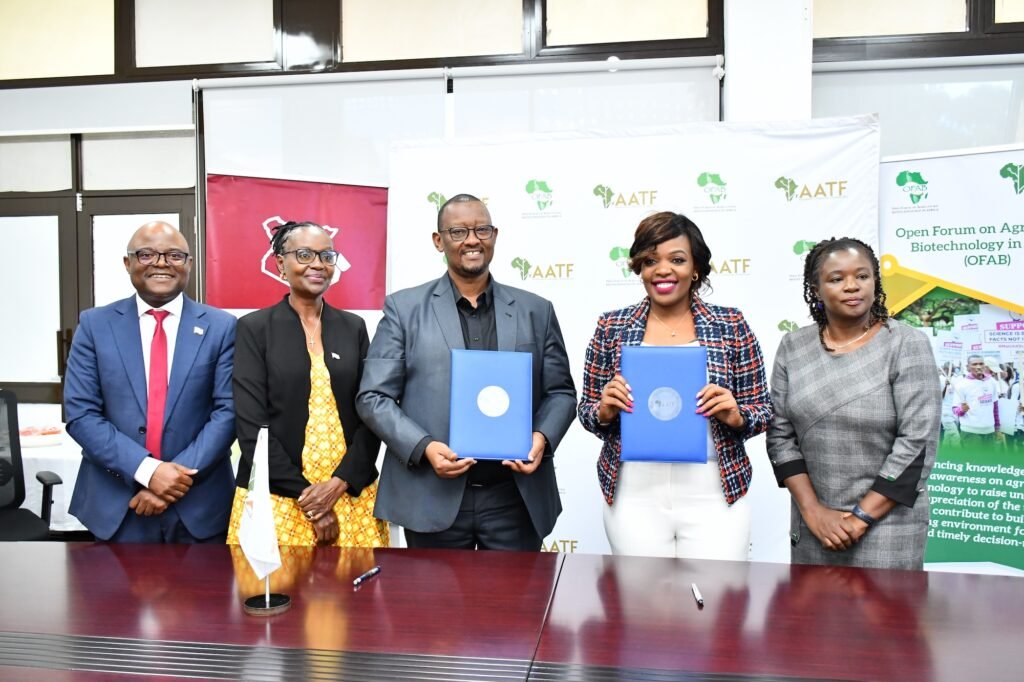By Murimi Gitari
HE African Agricultural Technology Foundation (AATF) and the Kenya Editors Guild (KEG) have signed a Memorandum of Understanding (MoU) to promote positive reporting of biotechnology in the local media and tackle misinformation and disinformation around the science. Under the MoU signed in Nairobi, the two organisations committed to enhancing the sharing of information related to agriculture, biotechnology, and sustainable practices.
Through workshops, training programmes, and educational initiatives, they intend to equip journalists with the skills needed to report issues around agricultural biotechnology accurately. Speaking during the signing of the MoU, the AATF Executive Director, Dr Canisius Kanangire, noted that the Editors Guild will play a critical complimentary role to the Open Forum on Agricultural Biotechnology (OFAB), a project by AATF that brings together agricultural stakeholders who include the scientist, farmers, policymakers, journalist and regulators to discuss agricultural biotechnology developments.
“Over 20 years since the introduction of GMOs, public perception about biotechnology is still shrouded in misinformation and disinformation hence the need for awareness and dissemination of accurate information on agricultural biotechnology.
We believe that this collaboration will be critical in supporting this mandate and consequently contribute to the acceptance and positive perceptions about biotechnology in Kenya,” Dr Kanangire said.
“Journalism’s role is to educate, promote and enhance ethical and professional standards. Editors have great convening power to engage various publics on the benefits of agricultural biotechnology for a prosperous and food-secure Africa.”
Dr Kanangire said the collaboration with KEG will also help in disseminating scientific information in words and a language that farmers can easily understand and bridge the communication gap between researchers producing knowledge and farmers who have been starved of the knowledge. “By uniting our efforts and leveraging the power of science and media, we can develop impactful solutions tailored to the unique needs of our region.
Our collaboration with the Kenya Editors’ Guild will help disseminate accurate information and promote the benefits of agricultural biotechnology,” he said. The President of the
Kenya Editors Guild, Zubeidah Kananu said that media houses are currently investing a lot of resources in reporting on climate change and smart agriculture. “There is a lot that is being done on the ground by not only farmers but agricultural stakeholders and we are ready to report these stories.
This is a crucial partnership that will now see journalist access resources and tools necessary to effectively communicate advancements in agricultural technology to the public. Through this partnership, we aim to foster a deeper understanding of these technologies, debunk myths and misinformation, and highlight the transformative potential they hold for our farmers and communities,” Ms Kananu said.
The collaboration with AATF, she said, is not only timely but also essential in addressing the challenges faced by the agricultural sector, enhancing food security, and driving sustainable development across the continent. “The Kenya Editors’ Guild is committed to ensuring that our reporters and editors are equipped with the knowledge and tools necessary to effectively communicate advancements in agricultural technology to the public,” she noted.

